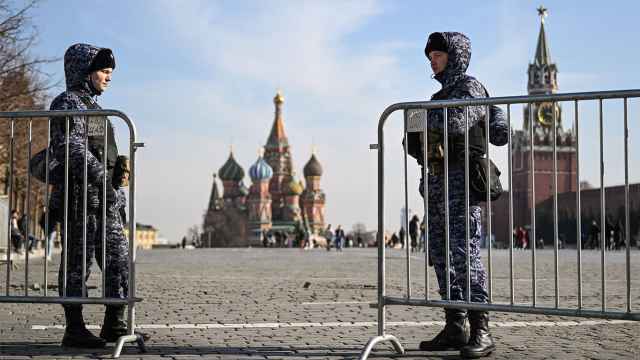
Ksenia Bruk
Associate
Salans
As opposed to most Western countries where legislation on energy efficiency has been continually developed over the last decades, the trend has only begun to gain traction in Russia in recent years.
Russians' lack of interest in the topic can be largely explained by the low cost of energy and a lack of competition in the real estate sector. With little incentive to maximize the quality of new buildings, Russian investors have generally chased short-term payoffs, rather than spend extra on energy efficiency measures that would see significant savings only over the longer term. However, the growing importance of foreign investment in construction projects in the Russian Federation has generated widespread public interest in green construction in general and energy efficiency in particular.
The main legal provisions in the sphere of energy efficiency are those contained in the federal law "On Energy Conservation and Improving Energy Efficiency, and Introducing Amendments to Certain Legislative Acts of the Russian Federation," adopted on Nov. 23, 2009 (the "Energy Efficiency Law"). This law provides for important ways of encouraging energy conservation and improving energy efficiency, such as:
- mandatory compliance of buildings, structures, and facilities with energy efficiency requirements (which are to be reviewed by authorities at least once every five years);
- obliging developers to install devices for measuring energy use in newly commissioned buildings;
- assigning newly completed apartment buildings an energy efficiency rating and displaying this rating on the building's facade;
- a prohibition on the sale of bulbs of 100 watts or more;
- tracking the energy efficiency of goods, works and services with respect to state and municipal procurement;
- state support for investment in energy conservation in the form of incentives provided in tax legislation;
- establishment of administrative liability for various violations of laws on energy conservation and the improvement of energy efficiency.
It should be noted however that the Energy Efficiency Law is more of a framework and will require that a large number of regulatory legal acts clarifying and elaborating on its provisions be adopted. The implementation of the various rules set forth in the Energy Efficiency Law will otherwise not be possible. For instance, the Energy Efficiency Law established an obligation to adopt regional and municipal programs in the sphere of economies of energy and increase in energy efficiency prior to Aug. 1, 2010. In reality, a number of such programs were adopted after this deadline had passed or without the necessary requirements for the programs having been adopted by the Russian federal government.
The following are some of the main deficiencies in the regulatory acts adopted in the sphere of energy efficiency:
- legislation establishes the requirement that measures be taken towards increasing energy efficiency with respect to state and municipal authorities and organizations with state and municipal participation, but it does not establish sufficient sources of financing for such measures (for example, the obligation of state-financed organizations to conduct mandatory energy inspections);
- private entities lack the effective tax and other stimuli to increase energy efficiency;
- the legal regulatory framework is incomplete, there are delays in the adoption of important legal acts, and deadlines for the implementation of measures to increase energy efficiency (such as equipping buildings with meters) have been pushed back.
Legislation does contain some key tax measures for stimulating increased energy efficiency: (i) the possibility of organizations that invest in the construction of facilities in the highest energy efficiency class can receive investment tax credits; (ii) the possibility of a special coefficient (not to exceed 2) can be applied to rates of depreciation for depreciable fixed assets that are highly energy efficient or that are in the highest energy efficiency class; (iii) property tax exemptions are provided for three years to organizations with respect to newly constructed facilities that are highly energy efficient.
In our view, in addition to the above tax incentives, which are clearly insufficient for a large-scale implementation of measures to increase energy efficiency, Russia could also follow the Western practice of adopting nonfinancial (organizational) stimulatory measures. These would include, for example: expediting/simplifying the procedure for approving design and construction documentation for energy efficient buildings (specifically, issuing construction and commissioning permits faster, expediting the state expert review, etc.); the possibility of obtaining use rights for land plots for construction or reconstruction of energy efficient facilities on preferential terms (for instance, without a tender); as well as other types and areas of support that do not require additional budget financing.
It is clear that the current Russian legislation in the sphere of energy efficiency requires further development and improvement. We believe the stimulus for wide-ranging energy efficiency measures should first come from the government, in the form of adequate financial and organizational support, and not only to state and municipal organizations, but to private companies as well.
A Message from The Moscow Times:
Dear readers,
We are facing unprecedented challenges. Russia's Prosecutor General's Office has designated The Moscow Times as an "undesirable" organization, criminalizing our work and putting our staff at risk of prosecution. This follows our earlier unjust labeling as a "foreign agent."
These actions are direct attempts to silence independent journalism in Russia. The authorities claim our work "discredits the decisions of the Russian leadership." We see things differently: we strive to provide accurate, unbiased reporting on Russia.
We, the journalists of The Moscow Times, refuse to be silenced. But to continue our work, we need your help.
Your support, no matter how small, makes a world of difference. If you can, please support us monthly starting from just $2. It's quick to set up, and every contribution makes a significant impact.
By supporting The Moscow Times, you're defending open, independent journalism in the face of repression. Thank you for standing with us.
Remind me later.





